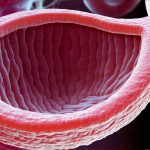The pursuit of radiant skin and lustrous hair often leads us down paths filled with topical treatments and beauty products. While external care is undeniably important, increasingly, scientific research points to an internal foundation for true beauty: the gut microbiome. For years, we’ve understood the gut’s role in digestion, but its influence extends far beyond that, impacting everything from immunity and mental health to – crucially – collagen production, skin elasticity, and hair quality. This interconnectedness highlights a holistic approach to wellness where inner health directly translates to outer radiance. Ignoring this crucial link means potentially missing out on lasting improvements, no matter how diligently we apply serums or conditioners.
The gut microbiome, comprised of trillions of bacteria, fungi, viruses, and other microorganisms residing in our digestive tract, is not merely a passive bystander but an active participant in numerous bodily processes. A dysbiotic gut – one with an imbalance of these microbial communities – can disrupt nutrient absorption, increase inflammation, and compromise the body’s ability to synthesize essential building blocks like collagen. Conversely, a thriving, diverse gut microbiome supports optimal function across systems, providing the necessary environment for healthy skin and hair growth. Understanding this dynamic relationship is key to unlocking natural beauty from within. You might also find valuable information about gut health in relation to common issues like bloating and skin problems.
The Gut-Collagen Connection
Collagen, often dubbed the “scaffolding protein” of our bodies, provides structural support to skin, bones, tendons, ligaments, and even hair. As we age, collagen production naturally declines, leading to wrinkles, sagging skin, and brittle hair. However, this decline isn’t solely dictated by time; it’s significantly influenced by the health of our gut. The synthesis of collagen requires several key nutrients – particularly amino acids like glycine, proline, and hydroxyproline, as well as vitamin C, zinc, and copper. A compromised gut microbiome hinders the absorption of these essential building blocks.
- Inflammation stemming from a dysbiotic gut can directly impede collagen production. Chronic inflammation signals to the body that it’s in ‘repair mode’, diverting resources away from processes like collagen synthesis.
- The gut microbiome plays a role in converting nutrients into forms our bodies can readily use. For instance, certain bacteria help synthesize Vitamin K2 which supports collagen crosslinking and strengthens its structure.
- A healthy gut enhances the bioavailability of proline and glycine through improved protein digestion and absorption – these are critical components for collagen formation.
Furthermore, leaky gut syndrome, often associated with dysbiosis, allows undigested food particles and toxins to enter the bloodstream, triggering an immune response that further fuels inflammation and damages collagen fibers. Supporting a robust gut microbiome isn’t about adding collagen directly (though supplementation can be considered); it’s about creating the optimal internal environment for your body to produce its own high-quality collagen naturally and efficiently. This holistic approach yields more sustainable results than simply masking the symptoms with topical treatments. If you suspect gut inflammation is impacting your energy levels, it’s worth exploring testing options.
Skin Elasticity & Gut Health: A Two-Way Street
Skin elasticity, a hallmark of youthful skin, directly reflects our body’s ability to maintain structural integrity through collagen and elastin fibers. As mentioned previously, gut health significantly impacts collagen production, therefore impacting this vital aspect of skin health. However, the relationship is not one-directional; skin health can also influence gut health. A compromised skin barrier – often resulting from inflammation or nutrient deficiencies linked to a dysbiotic gut – allows for increased exposure to environmental toxins and pathogens, potentially exacerbating gut imbalances.
The connection between gut health and skin elasticity extends beyond collagen. The microbiome influences the production of hyaluronic acid, another crucial component of healthy, hydrated skin that contributes significantly to its plumpness and elasticity. Moreover, certain bacterial strains can help regulate sebum production, preventing both excessive dryness and oiliness – both factors affecting skin barrier function and overall appearance.
- A balanced gut microbiome supports a strong skin barrier, reducing the risk of inflammation and premature aging.
- The gut’s role in nutrient absorption ensures adequate delivery of vitamins (like C & E) and antioxidants essential for protecting collagen and elastin from damage caused by free radicals.
- Addressing gut imbalances can significantly reduce systemic inflammation, which is a major contributor to skin aging and loss of elasticity.
Boosting Gut Health for Hair Quality
Hair quality – strength, shine, growth rate – mirrors the overall health of the body, with the gut playing an unexpectedly significant role. Like skin, hair requires specific nutrients for optimal growth and maintenance, including biotin, iron, zinc, vitamin D, and amino acids. A dysbiotic gut reduces nutrient absorption, leading to deficiencies that manifest as brittle, thinning hair or even hair loss.
Hair follicles are highly sensitive to inflammation. The chronic inflammatory state associated with a compromised gut can disrupt the hair growth cycle, leading to premature shedding and impaired regeneration. Furthermore, imbalances in gut bacteria can affect hormone regulation, specifically impacting dihydrotestosterone (DHT), a hormone linked to hair loss in both men and women. Addressing these underlying issues through targeted gut support is often more effective than solely relying on topical treatments or hair supplements. Understanding how dental health impacts chewing could also optimize nutrient absorption.
Dietary Strategies for Gut & Beauty Harmony
Improving gut health isn’t about restrictive dieting; it’s about embracing a food-first approach that prioritizes nourishing the microbiome. Incorporating prebiotic foods – those containing fibers that feed beneficial bacteria – is essential. Examples include garlic, onions, leeks, asparagus, bananas (slightly green), and oats. Similarly, probiotic-rich fermented foods like yogurt (with live cultures), kefir, sauerkraut, kimchi, and kombucha introduce beneficial bacteria directly into the gut.
- Focus on a diverse diet rich in whole, unprocessed foods to support microbial diversity.
- Limit sugar, processed foods, and artificial sweeteners, as these can feed harmful bacteria and disrupt gut balance.
- Consider incorporating collagen-boosting foods like bone broth, citrus fruits (for vitamin C), and berries (rich in antioxidants).
Lifestyle Factors That Impact Gut Health & Beauty
Diet is paramount, but lifestyle factors also profoundly impact the gut microbiome. Chronic stress significantly alters gut microbial composition, increasing inflammation and hindering nutrient absorption. Prioritizing stress management techniques such as yoga, meditation, or spending time in nature can support a healthier gut. Regular exercise promotes gut motility and diversity, while adequate sleep allows for restorative processes that benefit both gut health and overall well-being.
- Minimize antibiotic use whenever possible, as antibiotics indiscriminately kill both harmful and beneficial bacteria. If antibiotics are necessary, consider probiotic supplementation to help restore balance.
- Stay hydrated by drinking plenty of water throughout the day, supporting optimal digestion and nutrient absorption.
- Avoid excessive alcohol consumption, which can disrupt gut barrier function and promote inflammation. It’s also important to be aware of how GERD impacts oral health and overall wellness.
Ultimately, achieving radiant skin and healthy hair isn’t about chasing quick fixes; it’s about cultivating a thriving internal ecosystem that supports natural beauty from within. By prioritizing gut health through mindful dietary choices, stress management, and a holistic lifestyle approach, we can unlock our body’s innate capacity for radiance and vitality. If you are experiencing symptoms related to acid reflux, it is essential to address them proactively alongside gut health strategies. Additionally, those going through menopause may find specific support for bloating and gut sensitivity helpful.


















